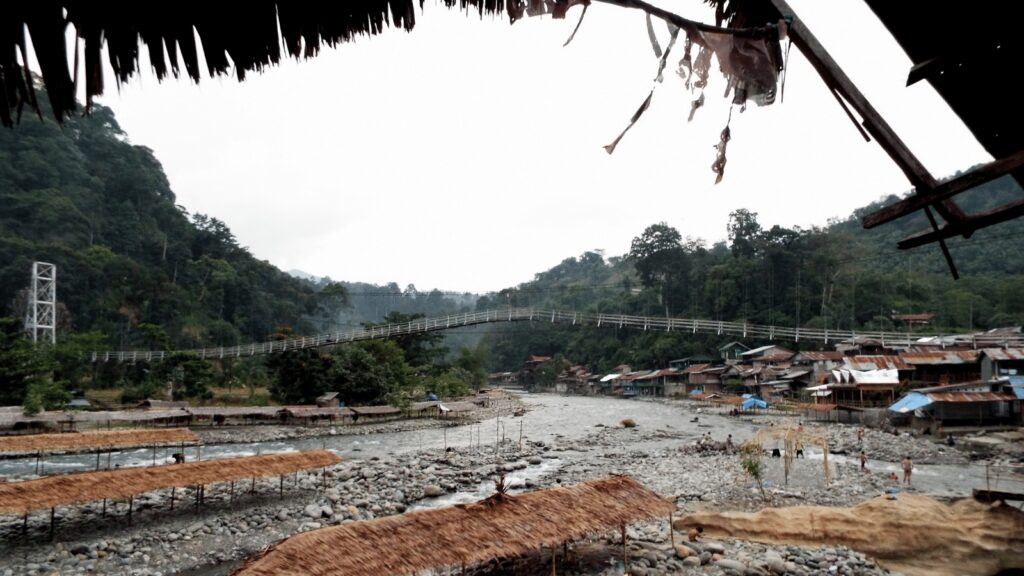The principle of ecological modernization is manifested in radical innovations in clean technology that streamline the use of materials, energy, transportation, space, and products according to a system of sustainability.
Environmental issues and climate change in Indonesia still need to be discussed, and all of us must support the environmental movement. This is due to the climate crisis accelerating at an unprecedented rate. Furthermore, the climate crisis has various factors that worsen climate conditions. Therefore, environmental issues are an important topic because they affect human life and the life of the next generations. In Indonesia, many environmental issues still need to be resolved, and one of the concerns is deforestation.
RELEVANT SUSTAINABLE GOALS



DEFORESTATION IN INDONESIA
Deforestation is dangerous because trees have a role in carbon dioxide storage and recycling (more than 300 billion tons of carbon dioxide are stored in them). That’s why if deforestation continues, the carbon dioxide supposedly stored in trees will be released into the atmosphere and affect climate change’s acceleration rate.
Based on Forest Watch Indonesia, from 2000 until 2017, Indonesia lost more than 23 million (ha) of forests. According to the World Resources Institute, in 2019, Indonesia was in the third position as the country with the most primary rainforest loss due to deforestation, which was 324 thousand (ha).
ECOLOGICAL MODERNISATION
The approach to solving environmental issues is by developing ecological modernization. Ecological modernization focuses on three things:
- Innovations or production of technology and market mechanisms to overcome environmental issues
- Transforming production methods and reducing pollution at the source
- Reducing the use of resources that does not interfere the economic growth
With this, economic and industrial growth can be done while protecting the environment.
In ecological modernization, the state plays a major role in two things. First, making and giving firmness to policies related to environmental management. Second, establishing government institutions. Currently, it is known that the Indonesian government already has a law related to forestry through an Omnibus Law so that infrastructure development is not disturbed and investors feel comfortable. The Indonesian government has also carried out many programs to maintain sustainable forests (e.g., selective logging, conservation forests, protected forests, and production forests). According to the World Resource Institute, Indonesia’s senior manager of Forest and Climate, Arief Wijaya, there has been an improvement since the governance carried out the law. First, some actors are suspected and responsible for forest fires and will be brought to court. Second, peatland restoration is the focus, and the government has also established Badan Restorasi Gambut (BRG), which is responsible for restoring 2.6 million (ha) of degraded peatlands in seven priority provinces of Indonesia.
Not just the state, a social movement is also important to urge business people and the state to stay focused on ecology and also facilitate and encourage community participation in the environmental protection movement. The Wahana Lingkungan Hidup Indonesia (WALHI) is Indonesia’s largest environmental movement organization. The main purpose of WALHI is to oversee the current development by promoting solutions to create a sustainable environment and uphold social justice for the community. Besides WALHI, Greenpeace, as an environmental NGO, positively impacts deforestation in Indonesia, which is a change in Nestlé’s policy regarding protecting tropical forests and peatlands and stopping the purchase of palm oil products from companies that are proven to be destroying forests. As a result, then deforestation in Indonesia is decreasing. The resulting impact was strengthened by the release of the Forest Moratorium by the previous president of Indonesia, Susilo Bambang Yudhoyono, which was later extended by the current president of Indonesia, Joko Widodo.
HOW CAN WE HELP?
We can support the environmental movement by doing the closest thing to our everyday life, like using reusable shopping bags when grocery shopping, using reusable cups, or using Tumblr. Using public transportation whenever you go. We can also help by reforestation by planting trees based on the types of trees. Since 1993, the Indonesian government has encouraged Indonesian citizens to plant trees in their neighborhoods. In Jakarta, Indonesia, the government built a public park and planted many trees in the park. As far as I know, these are the attempts made by the Indonesian citizen and government to do reforestation and protect the environment.
You may also be interested in :
A Degree Of Concern : The Climate Crisis Is One Of Environmental Justice


